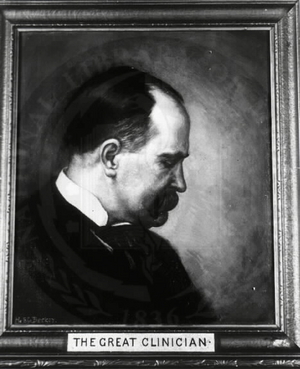



Role Models
Role Model: "a person looked to by others as an example in a particular role"[1]
Role models, like mentors can be valuable in career development.
In these modules we will present you with some ’virtual role models’ people practicing medicine who are exemplars of each physician Role; many of whom embody all of the Roles. These physicians may not be in your specialty but they will still provide examples of how to negotiate all of the challenges and expectations of medical practice.

Some of the role models are historic. The first of these is Sir William Osler. Osler, a Canadian by birth who resided in both the US and England during his life, is an accepted example of all a physician should be. He was involved in the establishment of Johns Hopkins medical school, read widely and wrote prolifically, was a champion of students and patient care. His clinical acumen and bedside manner are legendary, almost 90 years after his death. He excelled in all of the Roles.
We would not consider him to be perfect by today’s standards - he questioned the decision to allow women into the medical school at Queen’s and had strong opinions that men should not work past 60 years of age. How to understand these opinions today is beyond the scope of this module, but can stand as a reminder that we are all products of our time and that medicine is shaped by and responds to social context.
_________________________________
1. Brown L. editor. The New Shorter Oxford English Dictionary. Oxford:Oxford University Press;1993.p. 2618.
 Previous
Previous